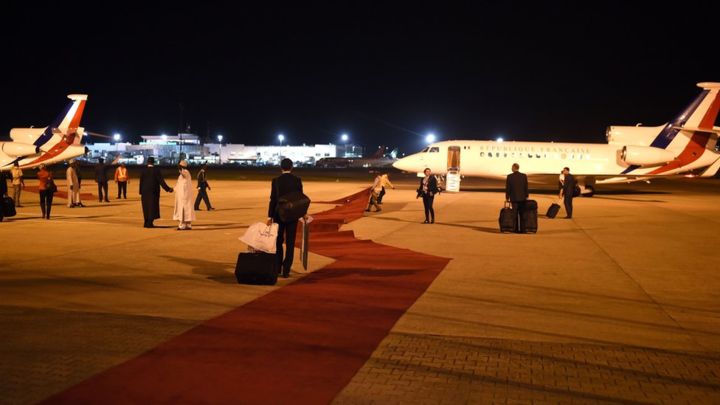- Abuja Airport Closure Opened Opportunities for Kaduna
The Kaduna State Governor, Malam Nasir el-Rufai, on Tuesday stated that the closure of the Nnamdi Azikiwe International Airport, Abuja, opened up opportunities for the Kaduna International Airport, which he said had gained a global status.
He stated that no single incident of concern was recorded at the KIA during the six-week period that the airport served as an alternative to the Abuja airport despite the enormous fight activities that it recorded.
The Federal Government had on March 8, 2017, shut the Abuja airport for six weeks to repair its 3.6-kilometre runway and consequently diverted flight activities to the Kaduna International Airport.
El-Rufai, who spoke at an event on the inaugural flight of Ethiopian Airlines to the Kaduna airport, also called on citizens in the North-West area to shun other international carriers, stressing that the foreign airlines abandoned Kaduna State when it needed them to develop its aviation potential.
“I want to thank the Federal Government of Nigeria, because the decision to close the Abuja airport for repairs was what enabled us to see the opportunities that Kaduna provides. For the six weeks that we had flight operations here, we recorded over 45 flights a day and there was not a single incident of concern,” the governor stated.
He said the state government had resolved that none of its employees would travel with any international carrier other than Ethiopian Airlines.
El-Rufai said, “From today, Kaduna is a full international airport and the people of this state do not have to travel anywhere to connect over 100 destinations, using Ethiopian Airlines.
“As for us in the Kaduna State Government, we have already taken a decision that every employee of the government must take Ethiopian Airlines, unless it is a destination that the airline does not go to.”
He added, “Ethiopian Airlines is the only airline that showed enough confidence in Kaduna to fly here. When other airlines were abandoning us, they became true brothers by standing with us.
“From Kano, Kaduna and Abuja, no one in the North-West zone has any excuse to fly any other airline. So, we have no excuse to pay a lot of money to other foreign airlines that did not remember us when we needed them.”
The Managing Director, Federal Airports Authority of Nigeria, Mr. Saleh Dunoma, said the commencement of international flights into the KIA would increase the revenue of the agency, as well as help grow the contribution of the aviation sector to the country’s Gross Domestic Product.
He stated, “As far as FAAN is concerned, you know our revenue generation depends on flights, especially international flights. So, as far as we are concerned, this is an opportunity for us to generate more revenue to maintain old facilities and investments.
“It starts with one airline and once other airlines see that the first airline is making a lot of money, they will come in; it will draw attention. As the passenger number grows too, you will discover that other airlines will develop interest and they will start applying to join the race.”

 Education4 weeks ago
Education4 weeks ago
 News3 weeks ago
News3 weeks ago
 Business3 weeks ago
Business3 weeks ago
 Technology3 weeks ago
Technology3 weeks ago
 Investment4 weeks ago
Investment4 weeks ago
 Investment3 weeks ago
Investment3 weeks ago
 Telecommunications4 weeks ago
Telecommunications4 weeks ago
 Banking Sector3 weeks ago
Banking Sector3 weeks ago






























